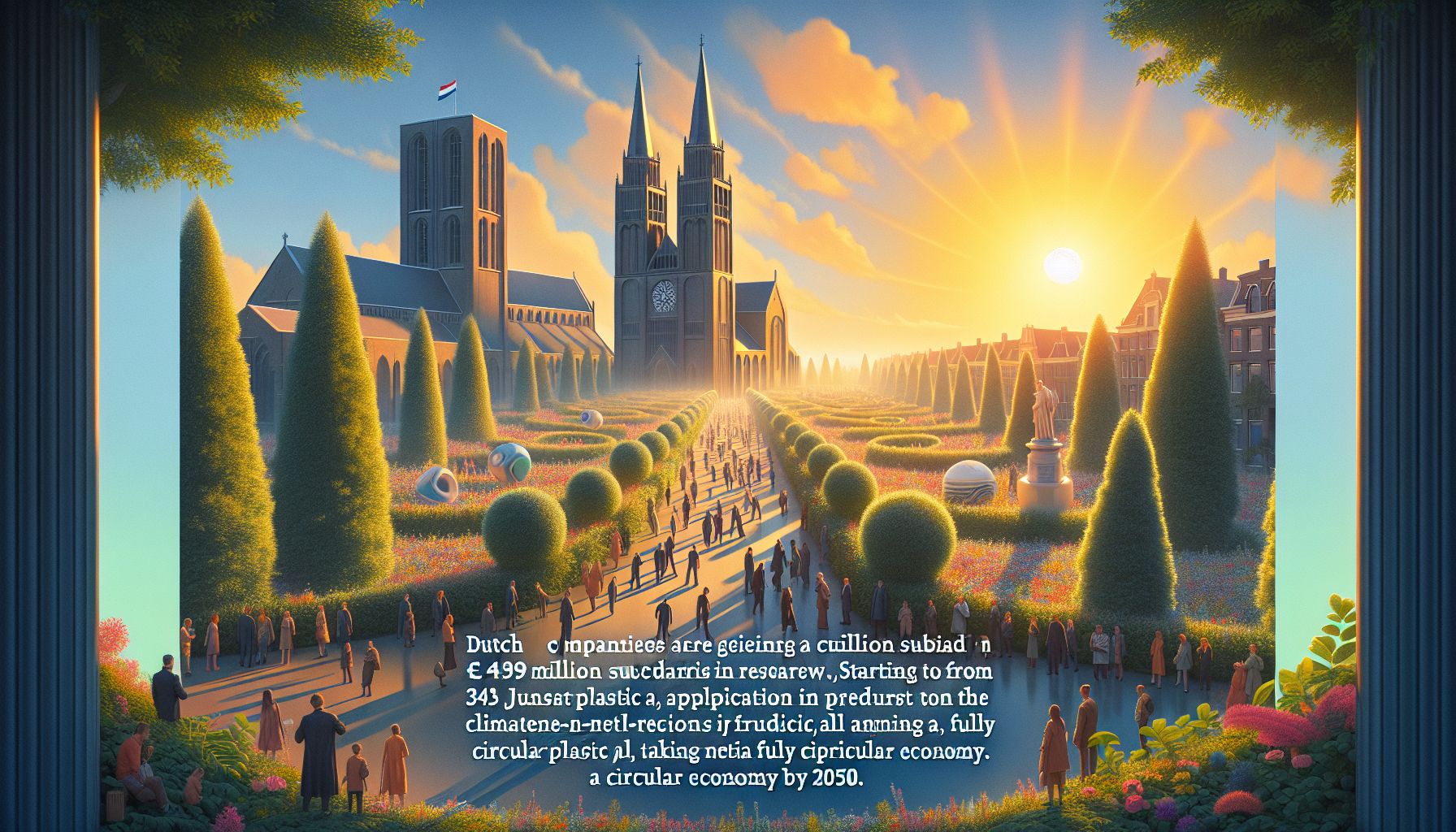Dutch Companies to Receive €49 Million Subsidy for Circular Plastic Research

Starting 18 June 2024, Dutch companies can apply for a €49 million subsidy to research circular plastic use in production, aiming for a climate-neutral, fully circular economy by 2050.
Subsidy Details and Objectives
This subsidy, championed by Minister Mark Harbers, reflects the Dutch government’s commitment to advancing a climate-neutral and fully circular economy by 2050. The initiative allocates €49 million for technical tests and research aimed at replacing fossil plastics with recycled and bio-based alternatives. The subsidies will be available to companies until 2030, offering a substantial period for businesses to innovate and integrate sustainable practices in their production processes[1].
National Circular Plastic Norm (NCPN)
From 2027, the National Circular Plastic Norm (NCPN) will mandate the use of recycled or bio-based materials in new plastics, aligning with the broader goal of promoting a circular economy. This norm is part of a larger €267 million package designed to stimulate the use of circular plastic across various sectors. By setting these regulations, the government aims to accelerate the transition from fossil-based to renewable resources, ensuring that industry practices support environmental sustainability[1].
International Collaboration and Inspiration
The Netherlands’ approach is inspired by successful international collaborations. For instance, PepsiCo Europe’s partnership with GreenDot Group has increased the recycling capacity for snack packaging, integrating 50% recycled plastic into their products. Such initiatives demonstrate the effectiveness of collaboration and innovation in achieving circular economy goals[1].
The Role of Chemical Recycling
Chemical recycling is emerging as a crucial technology for achieving circularity in the plastic sector. By breaking down plastics into their monomeric building blocks, this method allows for the production of high-quality recyclable materials. Europe, Asia, and North America are heavily investing in chemical recycling research and infrastructure, recognizing its potential to address the global plastic waste crisis. This technology not only enhances recycling efficiency but also supports the production of high-quality, reusable plastics[2][3][4].
Fraunhofer CCPE and the Future of Circular Plastics
The Fraunhofer Cluster of Excellence Circular Plastics Economy (CCPE) is at the forefront of this transformation, focusing on converting plastic waste into valuable resources. Their upcoming presentations at Achema 2024 and other international forums highlight advancements in sustainable geosynthetics and advanced recycling technologies. These efforts underscore the importance of multi-stakeholder collaboration in transitioning to a circular plastics economy[3].
Long-Term Impact and Vision
The long-term vision of these initiatives is to establish a sustainable plastics system that minimizes environmental impact while maintaining the functional benefits of plastics. By integrating circular practices, such as recycling and bio-based alternatives, the Netherlands aims to lead by example in the global effort to combat plastic pollution and climate change. This subsidy is a significant step towards achieving these ambitious environmental goals[1].

